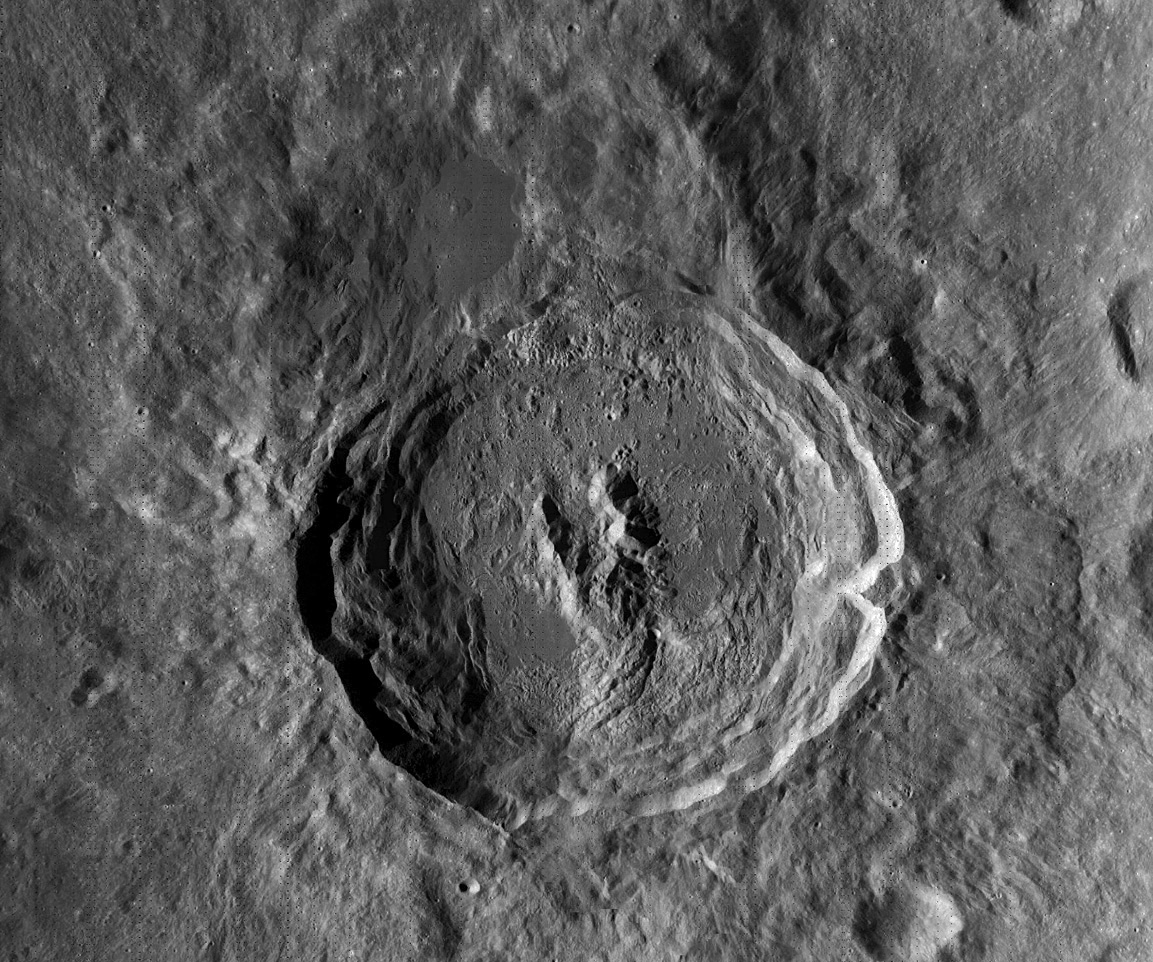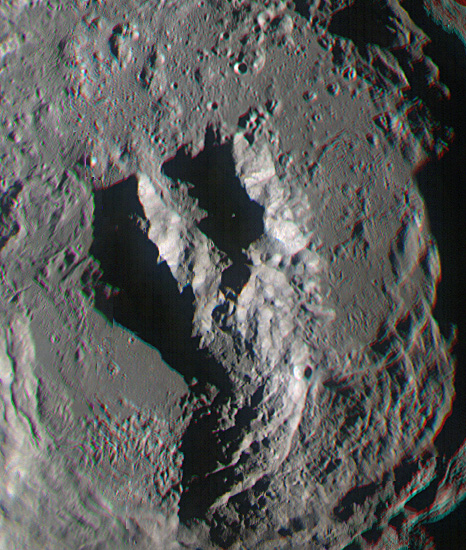September 29, 2010
King for a Day
[ "
" </a>
</a>
assembled from images by LRO/WAC/GSFC/ASU
The crowning crater on the farside must go to King. It is a great 77km diameter crater hidden from our view on Earth at 5N, 120.5E, and is a <a class= Copernican] aged complex crater with an unusual claw shaped central peak, melt ponds and landslides in the walls. The peak is possibly caused by the rebound material going up and collapsing to the North. There are also impact melt ponds on the floor with some volcano like domes with vent-like craters in their tops which can be seen running in a line along the north-eastern floor in the closeup color WAC image below that I processed this afternoon. Are they of volcanic or impact origin? My guess is impact melt, but hard to tell. Also in King Y, to the north, the floor is covered with smooth mare-like material. The south wall of King has collapsed inward onto the floor and external to the rim on the ejecta blanket to the east (right) it has a flow like appearance. Perhaps King was caused by an oblique impact. There is just so much to see and describe in this King of craters that I will let you go exploring!
[ "
" </a>
</a>
Above: King's central peak and floor from WAC color image. The peaks have names, the west fork is called Mons Dieter, the east fork <a class= Mons André] and the base that runs from the south wall is Mons Ganau.
[mailto:mauricejscollins@hotmail.com
Technical Details
Processed by Maurice Collins with Octave using Rick Evans' method from + <a class="wiki_link_ext" href="http://wms.lroc.asu.edu/lroc/view_lroc/LRO-L-LROC-3-CDR-V1.0/M119062083MC"M119062083MC_pyr + + <a class="wiki_link_ext" href="http://wms.lroc.asu.edu/lroc/view_lroc/LRO-L-LROC-3-CDR-V1.0/M119075647MC"M119075647MC_pyr --> [
Color image processed by Maurice Collins with LROC <a class="wiki_link" href="http://the-moon.wikispaces.com/Assembling+WAC+Images">WAC previewer] from + <a class="wiki_link_ext" href="http://wms.lroc.asu.edu/lroc/view_lroc/LRO-L-LROC-2-EDR-V1.0/M115522919CE"M115522919CE + --> <a class="wiki_link_ext" href="http://moonscience.yolasite.com/resources/King_color_mosaic_MCollins_M115529715CE.jpg"Full Image
Images stitched with [http://research.microsoft.com/en-us/um/redmond/groups/ivm/ICE/
Related Links
<a class="wiki_link_ext" href="http://planetarynames.wr.usgs.gov/images/Lunar/lac_65_lo.pdf" LAC 65] in IAU/USGS <a class="wiki_link" href="http://the-moon.wikispaces.com/USGS+Digital+Atlas">Nomenclature Atlas]
[http://www.nasa.gov/mission_pages/LRO/multimedia/lroimages/lroc-20100126-king.html
<a class="wiki_link_ext" href="http://www.lpi.usra.edu/lunar/lunar_flyovers/king_crater/"King Crater Flyover]
[http://history.nasa.gov/SP-362/ch5.4.htm : A view from Orbit
<a class="wiki_link_ext" href="http://adsabs.harvard.edu/abs/2003Icar..163..307H"Heather, D. and Dunkin, S. (2003)] "Geology and stratigraphy of King crater, lunar farside." Icarus 163, pp. 307-329.
[http://www.hq.nasa.gov/alsj/a16/a16psr.html 29-62
COMMENTS?
Click on this icon File:PostIcon.jpg at the upper right to post a comment.



